Comment: Africa Day of School Feeding reminds us why scaling up school meals is so important
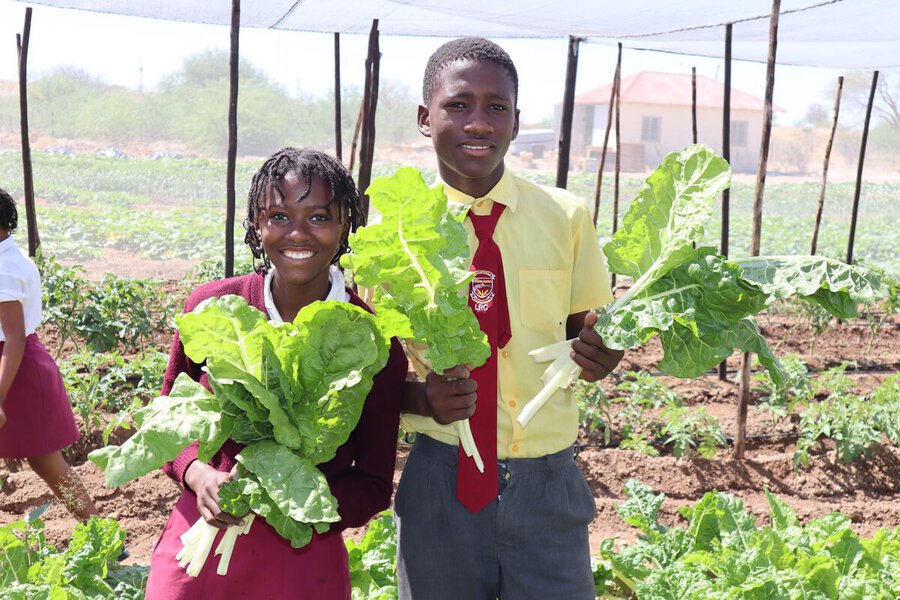
The pungent smell of boiling beans and burning ugali (maize meal) wafting through the corridors is one I can recall from my days growing up in a government boarding school in Dar es Salaam, Tanzania’s capital.
At times, the smell would change to boiling cabbage and burning rice. This was special to us, and we had to make sure we lined up at the dining hall on time.
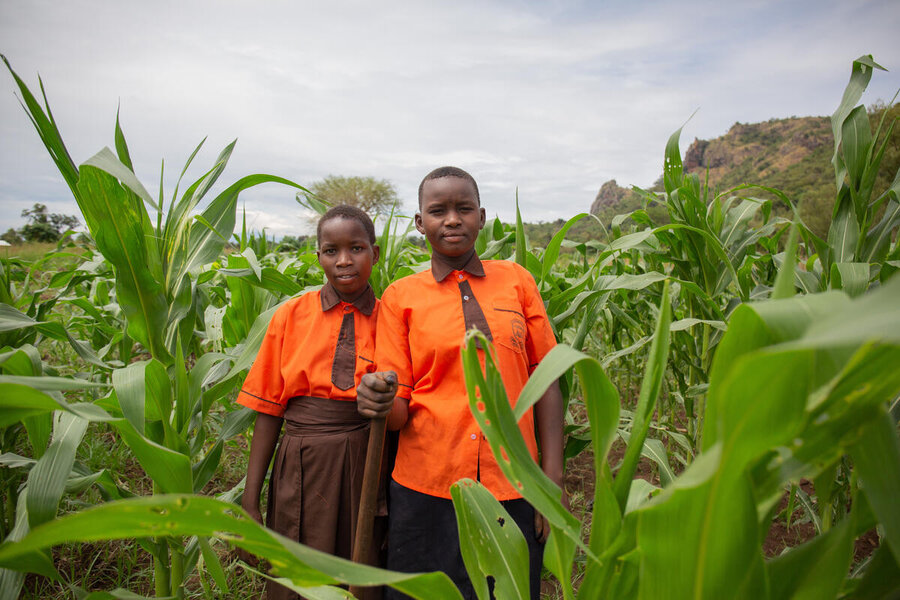
These were my school lunches and dinners for a couple of years: plain, bland and monotonous, day in, day out.
With time, we all learned to ‘enjoy’ our meals. We could throw in any seasoning, or banned things such as chillies, ketchup, margarine or (my favourite) mango pickle whenever we could sneak them in.
This became the beginning of my hate-hate relationship with beans and ugali. For years to come I could not stomach the smell of boiling beans.
It took many years to make peace with this food that is a staple in much of sub-Saharan Africa.
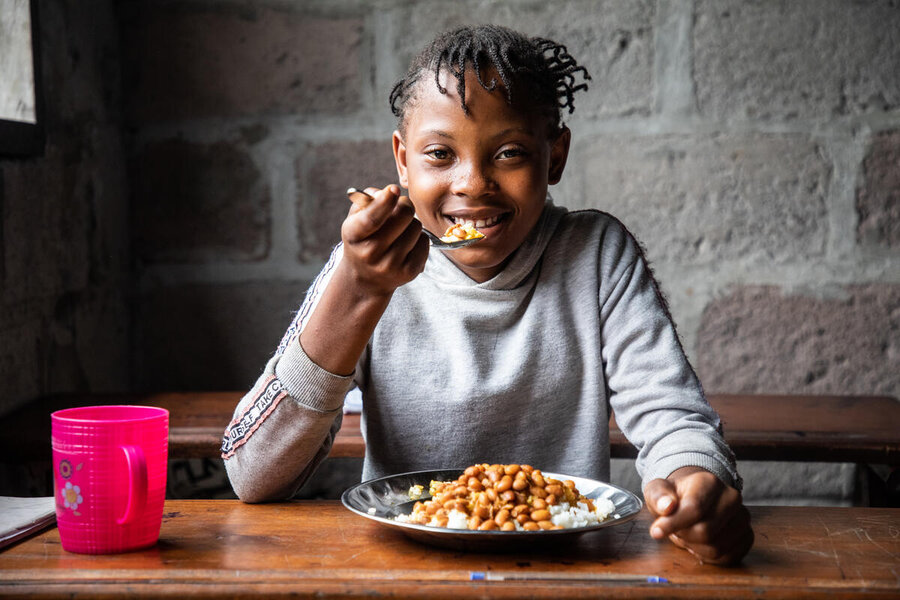
School meals have since evolved and transformed, thanks to a close collaboration among policymakers, experts, and agencies like the World Food Programme (WFP), to advocate for stronger political commitments and support national governments in developing and implementing policy and regulatory frameworks focusing on both food quality and scale in rolling out school meals.
Today, diverse, healthier meals are on school menus, including products such as grains, roots and tubers, legumes, vegetables and fruits, as well as meat and dairy – the selection of which is based on affordability and availability.
WFP has been in the forefront of this change, driving the classroom nutrition agenda to ensure every child has access to healthy, nutritious meals in school.
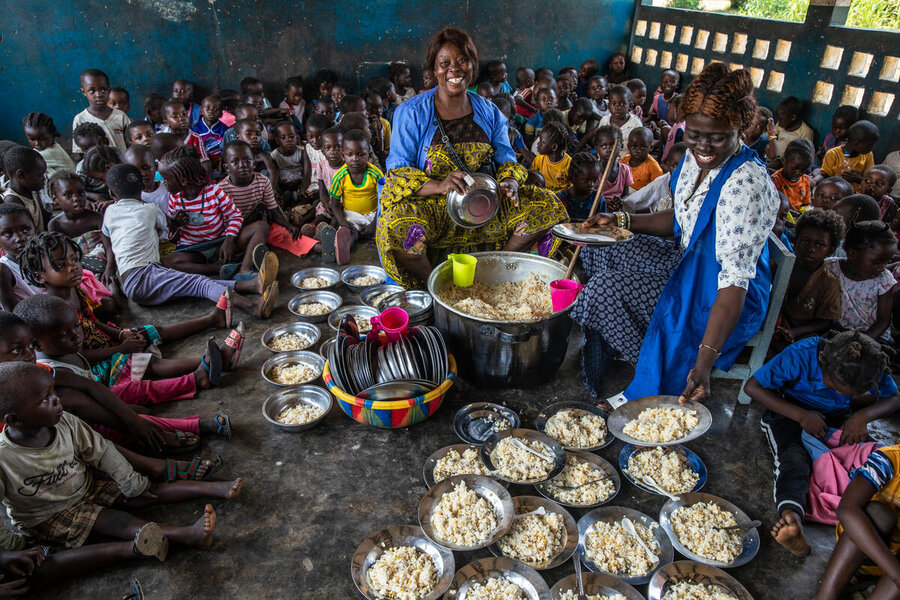
Since 2022, 48 out of 54 countries in Africa have put school feeding policies in place. This is an important milestone, as policies help to solidify national commitments, clarify objectives and strategies, and set guidelines and nutrition standards for school feeding programmes.
Home-grown school-feeding programmes (HGSF) – which offer safe, diverse and nutritious food, sourced locally from smallholders and school gardens – provide an incentive for parents to send their children to school. They also help to build capacity and support livelihoods of smallholder famers and local communities.
Studies show that school meals not only reduce hunger and improve health and nutrition, but also boost countries’ productivity and allow children to better understand the links between what we grow and what we eat.
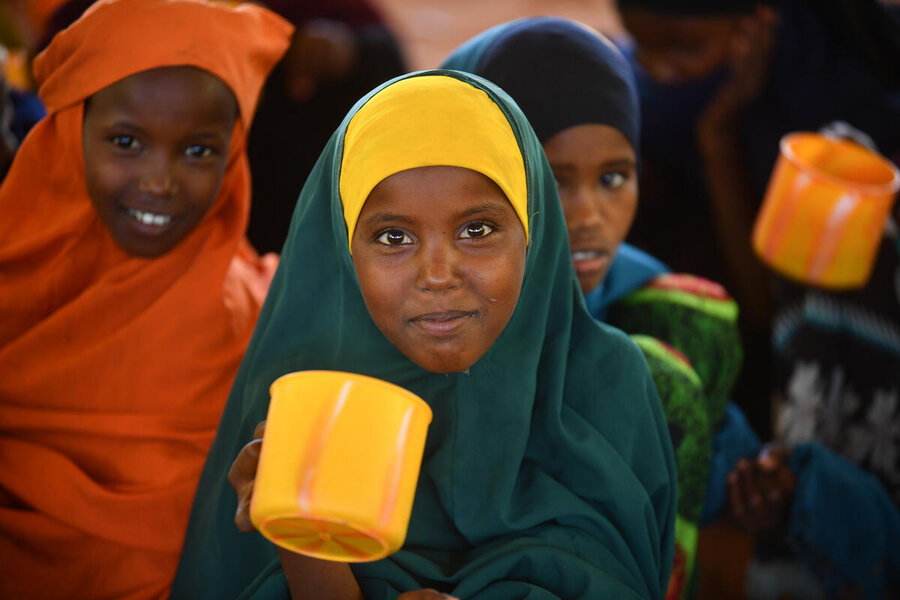
However, despite all the progress made over the years, not every child is lucky enough to have a healthy meal in school. Many school feeding programmes still grapple with inadequate and unpredictable funding.
According to WFP, school meals programmes in Africa support 55 percent of students in upper middle-income countries, only 15 percent of children in low-income countries receive school meals.
These findings undermine the Continent’s aspirations, articulated in the African Union’s Agenda 2063, which includes developing Africa’s human and social capital (through an education and skills revolution) and having healthy and well-nourished citizens.
To achieve this, scaling up school meals must become a priority.
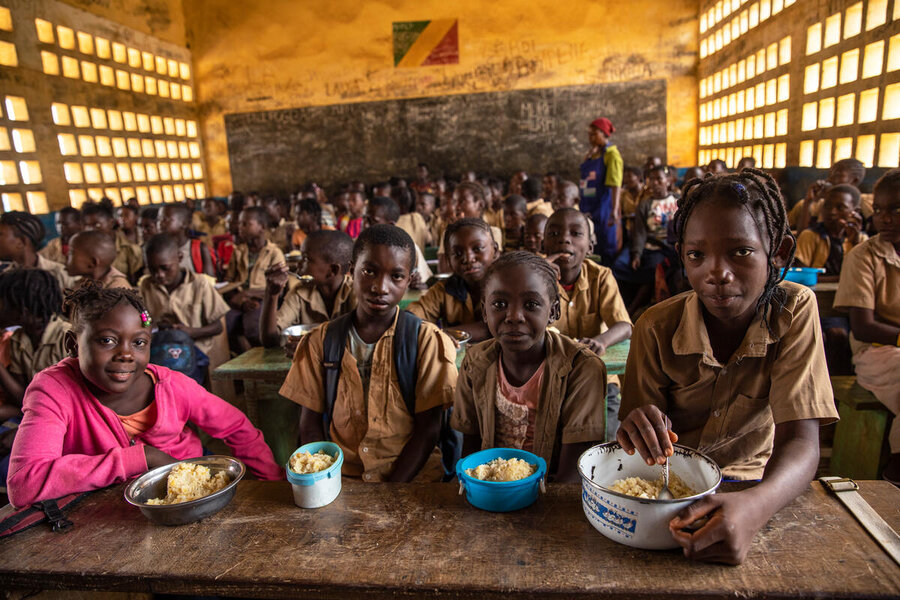
African governments and their development partners must continue to invest in school meals, to ensure all children can receive a healthy meal, no matter where they grow up.
The Africa Day of School feeding is an excellent opportunity to reflect and strategize on how best to improve and scale up school feeding programmes.
This is critical for the health and wellbeing of the Continent and its citizens - especially for those coming from low-income households in rural communities, this might be their only hope for a proper meal to allow them to learn and become productive citizens.
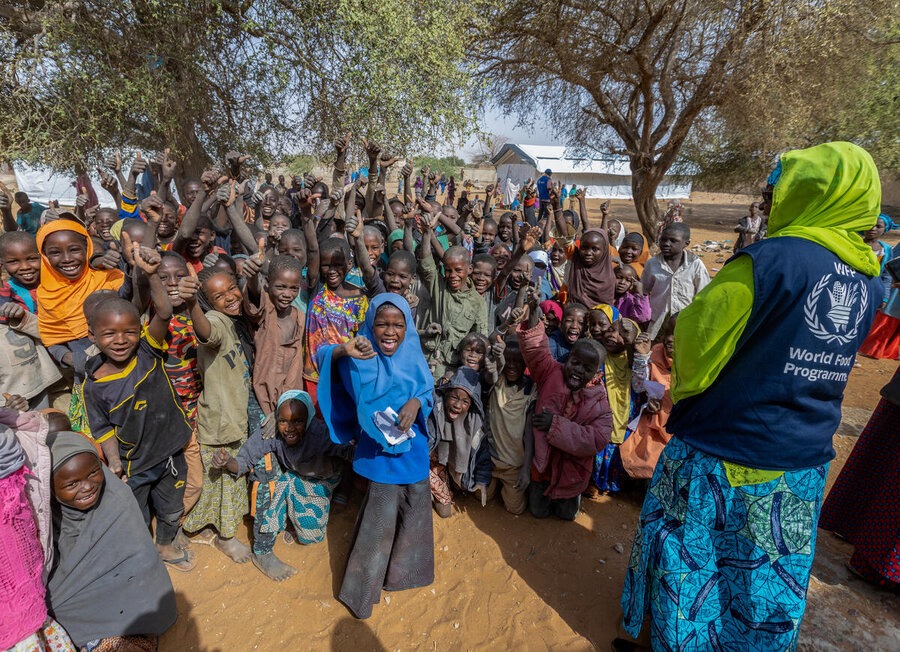
In places with acute food insecurity such as Sudan, South Sudan, Somalia or DRC, school meals become a lifeline.
The good news is that political commitment and support for school meals is increasingly being driven by governments under the coordination of the School Meals Coalition – which was set up by governments to drive actions to improve and scale up school meal programmes.
WFP has more than six decades of experience working with governments to support and realize sustainable national school meal programmes in more than 100 countries around the world.

In 2022, through WFP’s support to governments to establish or expand national school feeding programmes, we indirectly affected the lives of 107 million children. WFP additionally provided healthy meals, snacks, or cash-based transfers to more than 20 million schoolchildren that year, of which nearly half are in sub-Saharan Africa.
All these efforts and global experiences have been shaping school meals programmes such that, today, young pupils in Africa have more positive experiences of school meals – so it's imperative that they continue to access them.
As for me, each day I continue to learn more about the nutritional value of beans, and why they kept us going all those years. Besides, the smell is not all that bad!
